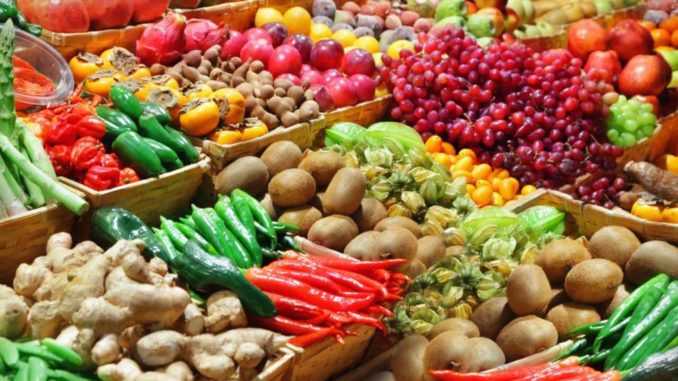
Nigerian farmers, analysts and agricultural scientists have called on the Federal Government to, as a matter of urgency, roll out a strategic plan to assist crop producers, poultry and livestock farmers as the United States of America (USA) has done.
The US President Donald Trump, in a bid to bail distressed farmers out of their predicament as a result of COVID-19 pandemic, announced a $19 billion package penultimate Friday.
The breakdown of the package indicated that $16 billion would be paid directly to the affected US farmers and $3 billion would be used to purchase their farm produce for onward delivery to needy households and individuals as reliefs.
Hence, analysts argued that if a more sophisticated agricultural system is helped in this trying period, a struggling agro-system needs much more if acute food shortage is to be averted.
Improved farm inputs, they added, are expensive, out of farmers’ reach and should be given free or subsidised as the stay-at-home period and associated implications have depleted their disposable income and capital.
Mr Ibrahim Kabir, the ex-president of the All Farmers Association of Nigeria (AFAN), suggested that the government should offer stimuli to the Nigerian farmers producing food crops in the interim.
This stimulus, he added, should be in the form of seeds, fertiliser, agro-chemicals, water pumps and other irrigation equipment, as well as some cash for farm labour.
“It is prudent to channel this through farmers’ associations to ensure that the practicing farmers benefit. It should be stated by state, supervised by the authentic AFAN, which has leaders in all the 774 local government areas in the country,” Kabir advised.
An agricultural extension specialist and former Regional Coordinator of the Bill and Melinda Gates’s Cassava: Adding Value for Africa (CAVA), Prof. Adebayo Kolawole, hinted that “it is important for all tiers of the government in Nigeria to support the food systems and value chains urgently, starting from this planting season.
“We need to set up a food reserve system that will ensure food availability in the post-COVID-19 era, as well as provide a seamless market for all agricultural commodities.”
The emergence of COVID-19, he argued, had been demonstrating in clearer terms the high level of food insecurity in the country and non-preparedness of governments and people on the continent to deal with a pandemic or any other natural or man-made emergencies that could threaten fragile food systems, defy national borders, endanger human survival (businesses and economy) or increases the vulnerability of the populace.
He added that the situation is aggravated by the fact that the government support might not reach the people on time due to failed and mostly unavailable infrastructure (power, water, transport, ICT and so on).
Going forward, Prof. Adebayo suggested building a multi-stakeholder community-based food reserve system on unique characteristics and local strengths to develop a system-wide approach to tackling the challenges of human vulnerability, threats to businesses and economy, access to government support and food security.
He explained that in most Nigerian communities, Community Development Councils/Associations (CDC/CDA) and other Community-Based Organisations (CBOs) have a significant presence and have been crucial for developing community resilience and improve good neighbourliness. Hence, these community-based structures could be used for food production palliatives, off-taking of farm produce and strategic storage of foods for rainy days.
Again, through self-help and other social processes, local communities have maintained community assets, institutions and processes such as local vigilantes, watersheds, community forests, town halls and alternative dispute resolution systems, worship centres, community infrastructures and so on. These, Prof. Adebayo opined, could also serve as veritable channels of agricultural palliatives and stimulants for higher productivity that could ensure food security.
Logistics of providing government or other external assistance to local communities during emergencies is often thwarted by weak, failing or non-available infrastructures.
He suggested that based on available and collectable data on community population and demographics, each CDC/CDA or CBO should be supported by the state and local governments with advisory services and other incentives to establish dedicated community-based food reserves, develop a system for stocking, maintenance, destocking and re-stocking the food reserves and participate in an annual community food reserve competition.
The competition, he added, would reinforce the key messages necessary for maintaining a desirable food reserve, serve as an annual reminder of the need to maintain, preserve and protect a community food reserve as well as support the sustainability of the food reserve systems.
Prof. Lateef Sanni, an ex-Deputy Vice-Chancellor of the Federal University of Agriculture, Abeokuta (FUNAAB), urged the Federal Government of Nigeria to declare tax holidays for agricultural value chain operators. The government, he added, should facilitate the movement of food and farm inputs with full cooperation by security operatives, especially at the local government levels.
“The Federal Government should step up mopping up of dried foods for the National Food Reserves. The government should help farmers with fertiliser and farm inputs through their producers’ associations. Otherwise, the government can convert the equivalent in naira,” Sanni explained the modalities the government could use to distribute palliatives to Nigerian farmers.
Regional Coordinator of Africa Rice Centre, IITA, Ibadan, Dr Francis Nwilene, said the Federal Government should buy back the produce from farmers for distribution to the vulnerable groups and underprivileged individuals, as the Rivers State government is doing.
“Because markets have been locked down, farmers have been eating their seeds meant for subsequent planting this wet/rainy season. The state governments should buy inputs (seed, fertiliser, herbicides) for distribution to farmers – incentives for farmers.
“They need the support from their respective state governments to be able to produce enough for the entire state and beyond,” Dr Nwilene said in a statement made available to The Guardian.
END

Be the first to comment